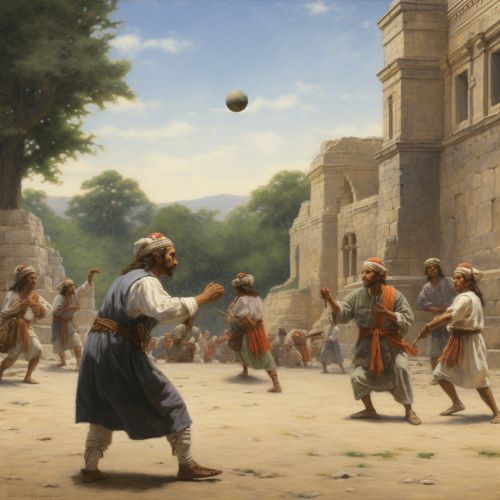History of Football
Origins of Football
Football, as we know it today, has its roots in a variety of ancient games played across the globe. In China, a game called "cuju" was played as early as the 2nd century BC, which involved kicking a leather ball through a small hole in a piece of silk cloth strung between two poles. Similarly, the Greeks and Romans played a game known as "harpastum", a precursor to the modern game.


Evolution of the Game
The evolution of football from these ancient games to the sport we know today was a gradual process. In medieval Europe, a variety of football-like games were popular among the masses. These games were often violent and chaotic, with few established rules. It was not until the 19th century in England that the game began to take on a more organized form.
19th Century Developments
In the early 19th century, different schools in England had their own versions of football. The need for a standardized set of rules became apparent, leading to the formation of the Football Association (FA) in 1863. The FA established a set of rules known as the "Laws of the Game", which included the use of a round ball, a pitch marked by boundary lines, goalposts, and a prohibition on using hands to touch the ball.
Modern Football
The modern game of football has evolved significantly since the establishment of the FA's Laws of the Game. The sport has become a global phenomenon, with professional leagues in almost every country and major international competitions such as the FIFA World Cup and the UEFA Champions League.
Professional Leagues
The first professional football league was established in England in 1888. Known as the English Football League (EFL), it initially consisted of 12 clubs from the North and Midlands of England. Since then, professional leagues have been established in countries around the world, each with their own unique structures and traditions.
International Competitions
The first international football match was played between Scotland and England in 1872. However, it was not until the 20th century that international competitions became a regular feature of the football calendar. The most prestigious of these is the FIFA World Cup, first held in 1930, which pits national teams from around the world against each other.


Impact and Influence
Football has had a profound impact on societies around the world. It has been a source of national pride, a catalyst for social change, and a powerful economic force. The sport has also influenced other areas of culture, including music, film, and fashion.
Social Impact
Football has often been a reflection of societal changes and tensions. The sport has been used as a tool for social integration, helping to break down barriers between different racial and ethnic groups. Conversely, it has also been a flashpoint for social tensions, with instances of hooliganism and violence associated with the game.
Economic Impact
Football has become a major economic force, generating billions of dollars in revenue each year. This revenue comes from a variety of sources, including ticket sales, broadcasting rights, and sponsorship deals. The sport has also created a vast number of jobs, both directly and indirectly.
Future of Football
The future of football is likely to be shaped by a number of factors, including technological advancements, changes in societal attitudes, and the ongoing impact of globalization. These factors could lead to changes in the way the game is played, watched, and governed.


